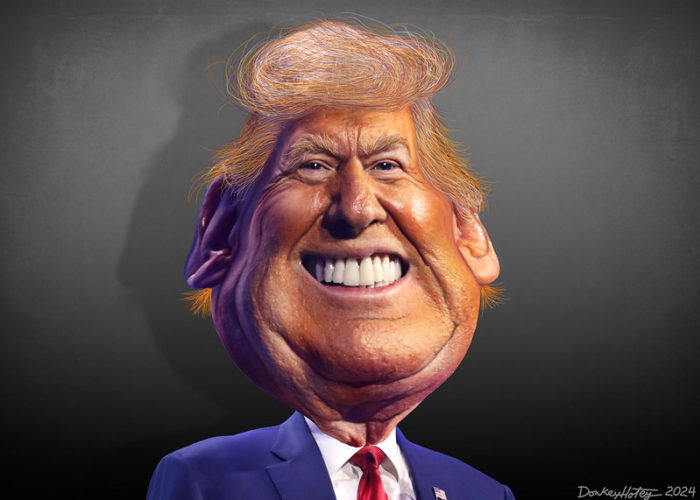
Donald Trump’s amazingly broad-based victory is lighting fires under many in the US and around the world as they scramble to deal with an aggressive iconoclast who does not fit in any pigeonhole of political counsel whether liberal or conservative.
He has his own intuitive instincts that are not guessable because they are traced only in his mind. How he implements them changes as he goes along.
Yet, voters gave him a new mandate despite being rejected in 2020, indicted over an attempt to overturn the election, impeached twice, convicted of felonies, shot by a would-be assassin and branded a fascist by his former aides.
The fault of thought leaders in America and elsewhere was that they tried to fit him in the continuum of their usual analytic models. They misled themselves by not shaking off preconceptions to take a cold-eyed look at Trump and what voters wanted.
Kamala Harris’s concession speech was a case in point. She conceded but with a proviso: “While I concede this election, I do not concede the fight that fueled this campaign — the fight: the fight for freedom, for opportunity, for fairness, and the dignity of all people. A fight for the ideals at the heart of our nation.”
She is clinging alongside others to a determination to paint Trump as an unsavory character who will not fight for freedom, opportunity, fairness, and people’s dignity, and does not revere American ideals.
Arguably, this is self-deception because more than half of American voters disagree. That’s more than 70 million people. All of them cannot be wrong or less intelligent than other citizens or require reeducation in American ideals.
“And we will continue to wage this fight in the voting booth, in the courts and in the public square,” she declared. “But here’s the thing, sometimes the fight takes a while.”
For apprehensive outsiders across the world this declaration suggests that her supporters should use all means to disrupt the work of their own freely elected President for four years.
Her exhortation may make a lot of sense to her domestic audience but for outsiders a weakened Trump administration could mean disasters visited upon their innocent people by wars in their neighborhoods sustained by US military support for allies.
Their hope is that Trump will have strong enough backing from all Americans to put a stop to the extremely lethal wars involving US friends and allies in the Mideast Levant region and Ukraine.
Their further hope is that Trump will successfully deter China from making good on its threats to swallow Taiwan or subordinate Vietnam and the Philippines.
The world outside America is riven by divides. For instance, Europeans want a continuation of expansive so-called liberal US policies under which American taxpayers have contributed generously to the defense and prosperity of Europeans for over 70 years.
Currently, Europeans are desperate for US military protection against Russia as well as economic and financial protection against Chinese products disrupting their lucrative automotive, telecommunications, high technology and other industries.
In contrast, weaker non-European countries desire peaceful and stable neighborhoods in which they can raise the living standards of their people, hopefully with help from American capital and technology.
They see Ukraine and Israel’s wars as quagmires sucking in US resources, leaving less for them. They already fear that Trump’s pledges to put American interests above all else will make them more vulnerable to neighborhood bullies.
A country choking with poor people cannot build the means necessary for protecting itself or dissuading bullies and terrorists. Nor can it stabilize democracy.
Weaker countries do not ask for American military protection but they do urgently seek economic, financial, technological and commercial support. They hope for benign US leadership to uplift their poor because they are home to the vast majority of humankind.
That cannot happen even in small measure unless Harris and the Democrats accept Trump’s convincing win as proof that Trump is not an aberration.
















